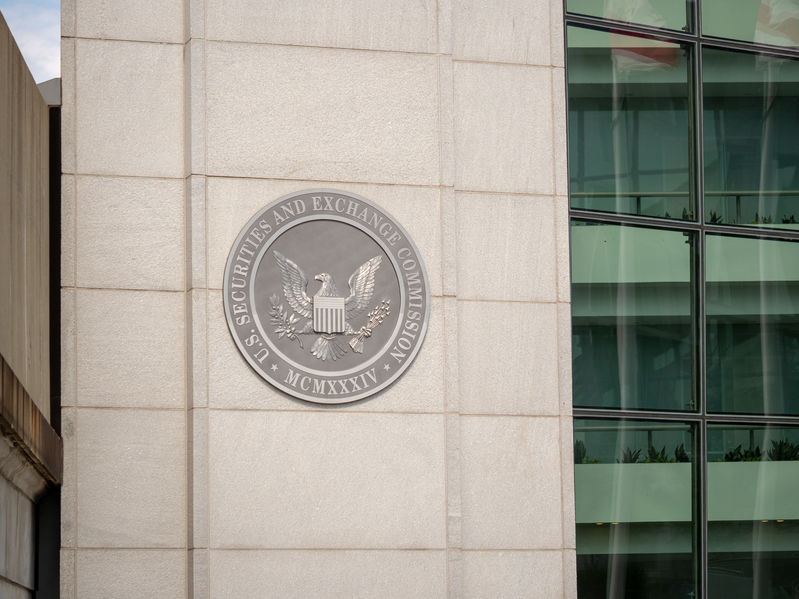Legal Briefs
Online Lender Wins Massive Arbitration Award After Retailer Challenged The “True Lender” Of The Loans
September 13, 2019 An arbitrator was unconvinced by a retailer’s arguments that business loans it obtained from Celtic Bank via Kabbage were responsible for the business’s eventual failure.
An arbitrator was unconvinced by a retailer’s arguments that business loans it obtained from Celtic Bank via Kabbage were responsible for the business’s eventual failure.
In 2017, NRO Boston, LLC and Alice Indelicato filed a lawsuit against Kabbage Inc. and Celtic Bank Corporation for allegedly violating Massachussetts’ usury law when the parties engaged in financing transactions years earlier. The complaint alleged that Kabbage’s relationship with Utah-based Celtic Bank was a “rent-a-bank” scheme that enabled Kabbage, as part of a sham, to piggyback off of Celtic Bank’s exemption from state usury laws. State chartered banks are typically not subject to state usury laws even in other states. The usurious loans it obtained from the parties, NRO argued, caused severe mental anguish, emotional distress, and financial strain which forced them to obtain even more loans from other lenders.
At the time, the National Law Review said this case exemplified the litigation risk inherent in using bank partnerships and that it was the latest example in the burgeoning area of “true lender” litigation.
Kabbage responded to the suit by enforcing its arbitration provision and the underlying litigation was stayed. The arbitration process proved to be extensive and expensive and tallied up more than 800 exhibits and 12 witnesses. On July 24, 2019, the arbitrator announced his decision, and it didn’t bode well for NRO Boston.
The difficulties the retailer encountered, the arbitrator wrote in his written decision, were caused by the owners’ inexperience, mismanagement of the business, the rapid expansion of the business, the assumption of millions of dollars of debt, and excessive owner compensation. NRO’s F rating with the BBB and the fact that the owners had paid themselves a whopping $1.3 million from 2010 – 2013, well in excess of industry averages, were reasons the business failed, the arbitrator wrote. Furthermore, Kabbage and Celtic Bank only accounted for 2.3% of NRO’s debt.
“The obvious conclusion, and I so find, is that Celtic and Kabbage and their business arrangement had nothing to do with the demise of NRO.”
More to the point, the arbitrator concluded that there was no merit to the allegation that Kabbage’s relationship with Celtic Bank was a “rent-a-bank” scheme.
As a result, Celtic Bank was awarded a grand total of nearly $3.3 million in legal fees, costs & expenses, and the outstanding balance owed on the loans.
On September 9, NRO filed a petition in federal court to vacate the arbitration award, in part because they believe the arbitrator engaged in a manifest disregard of the law. The matter is currently pending.
Four Plead Guilty In Fake Business Loan Scheme
September 11, 2019 Four of the five loan brokers indicted in a fake business loan scheme have pled guilty to charges.
Four of the five loan brokers indicted in a fake business loan scheme have pled guilty to charges.
Toplica and his co-conspirators were alleged to have duped an Ohio victim out of hundreds of thousands of dollars in upfront fees, the title to 55 vehicles including a Ford Mustang, several dump trucks, several tractors, several restored classic vehicles, a Freightliner motor home, and trailers. The ruse was that the money was going towards upfront fees to secure a loan and the vehicles were to serve as collateral. In reality there was no loan.
Haki Toplica, the group’s ringleader, pled guilty to 4 counts of wire fraud and 1 count of conspiracy.
Kathryn De La Torre, Luisa Goris, and Robert Russo also pled guilty to various charges. The case against co-defendant Haider Islam is still ongoing. Sentencing for the 4 defendants is expected to happen in January.
Princeton Alternative Income Fund Saga Devolves Into SEC Investigation, RICO Lawsuit
August 18, 2019The demise of the Princeton Alternative Income Fund has resulted in several ugly twists and turns. In addition to a slew of lawsuits, the bankrupt hedge fund is also being investigated by the Securities and Exchange Commission. Matthew Cantor, who is serving as the bankruptcy Trustee, cited the SEC’s probe as one of many reasons he filed a RICO lawsuit late last month against individuals and businesses formerly involved with the hedge fund.
Princeton’s trouble snowballed after the very public collapse of Argon Credit of which Princeton was a major investor. That in turn created a conflict with Ranger Direct Lending, a UK fund that had invested in Princeton. The end result is that Argon and Princeton filed for bankruptcy while Ranger was wound down.
1 Global Capital’s Carl Ruderman Consents To Judgment With The SEC
August 10, 2019Update 10/4/19: According to the docket, Ruderman has satisfied the judgment in full, with only the sale of his condo remaining.
 The SEC’s lawsuit against Carl Ruderman, the former CEO of Hallandale Beach-based 1 Global Capital, has come to an end. He has consented to judgment in a settlement and the penalties are devastating, papers filed on friday with the Court show.
The SEC’s lawsuit against Carl Ruderman, the former CEO of Hallandale Beach-based 1 Global Capital, has come to an end. He has consented to judgment in a settlement and the penalties are devastating, papers filed on friday with the Court show.
Specifically, Ruderman is liable for disgorgement of $32,587,166 representing profits gained as a result of the conduct alleged together with prejudgment interest on disgorgement of $1,517,273 and a civil penalty of $15,000,000. He must also sell his Condominium and disgorge 50% of the equity. Online real estate websites estimate his property to have 5 bedrooms, 8 bathrooms, and be worth in the range of $5,000,000 – $6,000,000.
1 Global Capital filed for bankruptcy last year after its business was hampered by investigations being conducted by the SEC and US Attorney’s Office. The SEC brought its case against Ruderman and his company a month later and alleged that it “fraudulently raised more than $287 million from more than 3,400 investors to fund its business offering short-term financing to small and medium-size businesses.” The investments were alleged to be unregistered securities and that millions of the funds raised from investors were misappropriated by Ruderman. The settlement stipulates that he does not admit or deny the allegations.
No criminal charges have been brought to date.
The SEC settlement was technically entered into in June but had to be reviewed and approved by the five SEC commissioners.
The unopposed motion for judgment was filed last week. It was signed by the judge on Monday, August 12th.
Loan Broker Busted In Advance Fee Loan Scam Faces Drug Charges
July 20, 2019Demetrios Boudourakis, who was arrested last month for operating an advance fee loan scheme that allegedly defrauded small business owners nationwide, is also facing federal drug charges. The criminal complaint, filed on June 14th, asks for an arrest warrant for conspiring to distribute controlled substances.
Star Fundraiser For 1 Global Capital Settles With The SEC
July 15, 2019 Henry J. “Trae” Wieniewitz, III was charged by the SEC on Monday for his role in allegedly selling unregistered securities in two companies, 1 Global Capital (the now defunct merchant cash advance provider) and Woodbridge Group of Companies (a purported real estate lending business revealed to be a $1.2 billion ponzi scheme).
Henry J. “Trae” Wieniewitz, III was charged by the SEC on Monday for his role in allegedly selling unregistered securities in two companies, 1 Global Capital (the now defunct merchant cash advance provider) and Woodbridge Group of Companies (a purported real estate lending business revealed to be a $1.2 billion ponzi scheme).
“Wieniewitz and Wieniewitz Financial raised more than $11.4 million and reaped approximately $500,000 in commissions from unlawful sales of Woodbridge securities, and raised more than $53 million and obtained approximately $3 million in commissions from unlawful sales of 1 Global securities,” the SEC stated.
Wieniewitz was not a registered broker-dealer nor associated with a registered broker-dealer.
A settlement was announced simultaneously. “Wieniewitz and Wieniewitz Financial settled the SEC’s charges as to liability without admitting or denying the allegations, and agreed to be subject to injunctions, with the court to determine the amounts of disgorgement, interest, and penalties at a later date,” an SEC statement said.
Wieniewitz was not alone in selling investments in both 1 Global and Woodbridge.
Separately, the owner of Woodbridge and two former directors of the company were recently charged criminally.
No criminal charges have been brought to date in the 1 Global Capital saga. That could change. 1 Global Capital revealed in 2018 that it was being investigated by the US Attorney’s office. That along with the SEC investigation prompted the company to file for bankruptcy. The SEC subsequently brought civil charges.
Documents filed in the SEC case against 1 Global’s former owner, Carl Ruderman, have since revealed that at least one former employee had been approached by the FBI about the operations of 1 Global.
Last month, it appeared Ruderman and the SEC were heading towards a settlement.
One notable fact about 1 Global Capital is that the company participated in the largest merchant cash advance in history at $40 million. That transaction has become a point of significant controversy and litigation. The recipient of those funds, a conglomerate of car dealerships in California, have shut their doors.
Federal Lawmakers Not Convinced NY Confession of Judgment Ban is Enough
June 25, 2019
The recent New York State law that effectively ended the era of Confessions of Judgment in the small business finance industry is apparently not enough to satiate the outrage of some federal lawmakers. This morning, Rep. Nydia M. Velázquez (D-NY) and Rep. Roger Marshall (R-KS) introduced the “Small Business Lending Fairness Act” that would outlaw confessions of judgment in small business financing transactions nationwide.
Given the impact the New York law is expected to have, the effort may appear to be duplicative. But not quite. The New York law prohibits COJs from being filed in New York against out-of-state debtors. As New York had the friendliest commercial COJ process, financial companies were using New York courts to file COJs against debtors in all 50 states whether there was a nexus to New York or not. By requiring the debtor be in New York, as the new law requires, the utility of COJs in the New York courts for the other 49 states has been eliminated.
However…
That doesn’t mean that courts in other states don’t allow commercial COJs to be filed in their home states. Some do, such as California and Pennsylvania, for example, but the process isn’t as friendly or as easy as New York’s. (See an analysis of California’s and Pennsylvania’s COJ process here)

That is where the proposed federal law would have the most reach and why a federal bill is not merely an academic exercise at this stage.
The federal bill’s language is not new. It mirrors a bill introduced by Senators Sherrod Brown and Marco Rubio in December. No movement has been made on it since but they reportedly intend to move forward with it.
Velázquez intends to keep the momentum going.
“I was appalled to find out that New York State has become an epicenter for dishonest lenders seeking to swindle small businesses around the country,” Velázquez said. “That’s why I’m proud to introduce this legislation and will be leading a hearing this week to further expose these abusive practices.”
The hearing she refers to is titled, “Crushed by Confessions of Judgement: The Small Business Story” and it’s being held tomorrow at 11:30am on Capitol Hill. It will be livestreamed here.
An alleged victim of predatory lending is among the guest speakers. Mr. Jerry Bush, who was featured in Bloomberg’s controversial series on merchant cash advances, is on the witness list. Bush reportedly lost his business after a series of unfortunate business dealings. Nobody from the small business finance industry is currently appearing to offer any opposing testimony on the matter of COJs. If that changes, deBanked will provide an update.
The hearing will be livestreamed on the deBanked homepage.
The Industrial Hemp and CBD Industries, and the Potential Risks for Merchant Cash Advance Funders
June 22, 2019 Authored by Josh Herndon of Global Legal Law Firm
Authored by Josh Herndon of Global Legal Law Firm
It seems that we are constantly being bombarded by news of the growing industrial hemp and cannabidiol (more commonly known as “CBD”) industries. Indeed, industrial hemp (and products derived therefrom, such as CBD) is now legal, and these industries have experienced substantial growth that is expected to continue into the foreseeable future. As such, the businesses in these industries seem to be ideal candidates for merchant cash advances (an “MCA”, or “MCAs”), as such businesses seem more than capable of repaying an MCA.
However, businesses in the industrial hemp and CBD industries are still subject to federal law, and their ability to sell their product can be impacted by enforcement of federal law by federal agencies. MCA funders partnered with such businesses may be harmed by if those businesses are unable to generate the sales needed to repay MCAs. Nevertheless, the possibility of an enforcement action by a federal agency doesn’t mean that all activities in which a business in the industrial hemp and CBD industries could engage would be a violation of federal law. Indeed, there are industrial hemp-related and CBD-related business- activities that likely would not violate federal law.
In sum, MCA funders considering MCAs to businesses in the industrial hemp and CBD industries need to be aware of all risks associated with such MCAs before making an informed decision about whether to make such MCAs.
Background Regarding The Industrial Hemp And CBD Industries.
A fast-growing, sustainable and inexpensively produced plant, industrial hemp is a variety of cannabis sativa L. that contains less than 0.3 percent plant chemical delta-9 tetrahydrocannabinol (more commonly known as “THC”). Unlike marijuana (which, like industrial hemp, is derived from cannabis), which is cultivated to yield psychoactive THC, industrial hemp yields more than 25,000 oil and fibrous products that are embraced by farmers as a hedge against lower-value soy, cotton and alfalfa crops.
Industrial hemp was legalized late last year pursuant to the Agricultural Improvement Act of 2018 (also commonly known as the “Farm Bill”). Related thereto, production of industrial hemp skyrocketed in 2018, with 112,000 acres licensed for cultivation, 3,546 cultivation licenses issued, 78,176 total acres cultivated, and 40 universities conducting research.
Numerous products are derived from industrial hemp including CBD, which is an oil-based product that has uses as a nutritional supplement and food additive In fact, seventy-eight percent of all industrial hemp grown in 2018 was for CBD. The market for CBD has exploded, and is expected to continue exploding. According to the Brightfield Group, industrial hemp-based CBD sales hit $170 million in 2016, and it is anticipated that a 55% compound annual growth rate over the five years thereafter will cause the market for industrial hemp-based CBD to crack the billion-dollar mark.
In addition to legalizing industrial hemp, the Farm Bill also guarantees that industrial hemp and industrial hemp-derived products can be imported, exported and transported from state to state like any other crops. The Farm Bill also allows industrial hemp businesses to access insurance and banking.
The FDA And Its Role With Respect To The Industrial Hemp And CBD Industries.
Although the Farm Bill legalized industrial hemp, industrial hemp and CBD businesses do not have carte blanche to take whatever actions they want with respect to their products. That is because the United States Food and Drug Administration (the “FDA”) is responsible for protecting and promoting public health through controlling and supervising food safety, tobacco products, dietary supplements, prescription and over-the-counter pharmaceutical drugs, cosmetics, animal foods and feed and veterinary products.
 The FDA has stressed that although industrial hemp is no longer an illegal substance under federal law, it will continue to regulate cannabis products under the Food, Drug, and Cosmetic Act (the “FD&C Act”) and Section 351 of the Public Health Service Act. That means that any cannabis product (such as CBD) that is marketed with a claim of therapeutic benefit, regardless of whether it is hemp-derived, must be approved by the FDA before it can be sold. In fact, the FDA has specifically cited deceptive marketing practices as one of its chief concerns, and it has clearly established that selling unapproved products with a therapeutic claim is unlawful.
The FDA has stressed that although industrial hemp is no longer an illegal substance under federal law, it will continue to regulate cannabis products under the Food, Drug, and Cosmetic Act (the “FD&C Act”) and Section 351 of the Public Health Service Act. That means that any cannabis product (such as CBD) that is marketed with a claim of therapeutic benefit, regardless of whether it is hemp-derived, must be approved by the FDA before it can be sold. In fact, the FDA has specifically cited deceptive marketing practices as one of its chief concerns, and it has clearly established that selling unapproved products with a therapeutic claim is unlawful.
The FDA has also confirmed that the addition of CBD to food products and dietary supplements is unlawful, even if the CBD is derived from industrial hemp. The FDA’s rationale is that CBD is an active ingredient in FDA-approved drugs, and its addition to the food supply and dietary supplements is illegal under the FD&C Act.
Recent FDA Actions Involving The Industrial Hemp And CBD Industries, And The Impact On Those Industries.
The FDA recently, and dramatically, showed how it will exercise its authority over industrial hemp and CBD products on March 28, 2019, when it (along with the Federal Trade Commission) issued warning letters to three businesses who sell CBD products alleging false, unfounded, unsubstantiated, and egregious health claims about (without sufficient evidence or FDA approval) their products’ ability to limit, treat or cure. The three businesses had advertised a range of CBD-containing supplements, and boasted the ability of those supplements to effectively treat diseases (including cancer, Alzheimer’s and fibromyalgia) and “neuropsychiatric disorders” in both humans and animals. The FDA threatened the three businesses with product seizures, injunctions and sales proceeds reimbursement.
 The above actions by the FDA understandably sent shockwaves through the industrial hemp industry, and those actions underscore the risks faced by industrial hemp and CBD companies. For instance, virtually all CBD products that make health and wellness claims, or are deemed a food or drug, are potentially subject to scrutiny from the FDA because such products are mostly sold over the internet and enter the “stream of interstate commerce”. However, it is such health and wellness applications, and food and beverage infusion, that makes CBD and other oil-based hemp derived products attractive to the consumers who are the target market of CBD companies. As such, industrial hemp companies that sell CBD products almost inevitably invite FDA scrutiny as a result of their efforts to market their products to their customers, and potentially imperil their ability to sell their products to those customers.
The above actions by the FDA understandably sent shockwaves through the industrial hemp industry, and those actions underscore the risks faced by industrial hemp and CBD companies. For instance, virtually all CBD products that make health and wellness claims, or are deemed a food or drug, are potentially subject to scrutiny from the FDA because such products are mostly sold over the internet and enter the “stream of interstate commerce”. However, it is such health and wellness applications, and food and beverage infusion, that makes CBD and other oil-based hemp derived products attractive to the consumers who are the target market of CBD companies. As such, industrial hemp companies that sell CBD products almost inevitably invite FDA scrutiny as a result of their efforts to market their products to their customers, and potentially imperil their ability to sell their products to those customers.
A Cautionary Tale For MCA Funders.
Although the industrial hemp and CBD industries seem to be ideal markets for MCA as a result of their past and anticipated future growth, the recent actions of the FDA described above highlight the very real perils faced by businesses in those industries. At first glance, businesses in those industries seem to be ideal candidates for repaying MCAs because of what appears to be bountiful future sales. However, product seizures and/or injunctions ordered by the FDA obviously could prevent businesses in those industries from selling their product and generating receivables from such sales. An MCA funder partnered with such a business would obviously be harmed if the business couldn’t generate the receivables needed to repay an MCA.
Fortunately, there are circumstances under which businesses in the industrial hemp and CBD industries can likely operate without fear of an enforcement action by the FDA. For instance, the FDA allows cannabis and cannabis-derived products to be introduced into interstate commerce where it approves such products (such as with the FDA’s approval of Epidiolex, a seizure medication containing CBD, in 2018). Moreover, the FDA has identified three lawful hemp derivatives (including hulled hemp seeds, hemp seed protein, and hemp seed oil) that can be marketed legally as long as they are not promoted with a therapeutic claim.
Based on the above, the circumstances under which an MCA funder should, or should not, make an MCA to a business in the industrial hemp and CBD industries can be very confusing. MCA funders need an insight into the industrial hemp and CBD industries, and the very real risks faced by those industries as described above, before making MCAs to businesses in those industries.
Fortunately, competent legal counsel versed in the MCA industry, as well as the industrial hemp and CBD industries, can provide such insight, and legal advice related thereto. As a practical matter, an MCA funder should not make an MCA to a business in the industrial hemp or CBD industries without first getting advice from such legal counsel so that the MCA funder can fully understand the risks involved in making such an MCA, and the circumstances in which such an MCA should, or should not, be made.
Bio
Mr. Herndon is an attorney at the Global Legal Law Firm, whose attorneys are well recognized as top industry experts. Mr. Herndon works in the compliance field helping electronic payment processing companies avoid getting fined, arrested, violate rules, or get sued from internal or external threats. Mr. Herndon is also involved in litigation in the payments space, including defending and pursuing electronic payments companies.





























